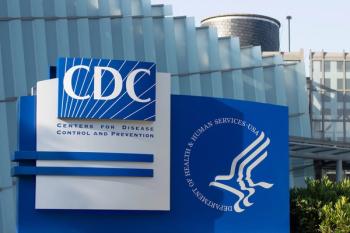
New program aims to streamline vaccine reporting, administration
A new program developed with the support of CDC aims to streamline vaccine-related functions in EHRs to make administration and reporting easier for clinicians.
Adults in the United States don't always get all the vaccinations they need, but it can be difficult for primary care physicians to track what shots a patient needs and when.
Joyce Sensmeier, MS, RB-BC
A new program developed with the support of the Centers for Disease Control and Prevention (CDC) aims to put vaccination data front and center in electronic health records (EHRs) to help clinicians in multiple ways.
Joyce Sensmeier, MS, RN-BC, CPHIMS, FHIMSS, , vice president of informatics at the Healthcare Information and Management Systems Society (HIMSS) North America, said the
"The IIP both tests and recognizes EHRs and other clinical software that demonstrate a core set of immunization-related capabilities that were developed based on clinical workflow and usability principles," Sensmeier told Medical Economics. "The IIP is not a reporting system; rather, it is a program that advances the integration of immunization-capabilities within software through testing and recognition."
The IIP was developed as a collaborative effort between HIMSS, ICSA Labs and Chickasaw Health Consulting with CDC support.
The program works by reducing the administrative burden of immunization charting using a testing tool developed by the National Institute of Standards and Technology. Approved by the Office of the National Coordinator for Health Information Technology, the program allows clinicians to have better access to immunization data at the point of care, according to HIMSS. The data will have benefits in helping providers keep patients up-to-date on immunizations, as well as to track trends in groups of patients.
The program's software is aligned with eight clinical workflow functions associated with immunizations-including patient decision-making, managing inventory and administration and reporting data-that were developed with the help of clinicians and other stakeholders, Sensmeier said. For primary care physicians, there are many benefits, she said.
"It is our hope that the Immunization Integration Program will improve clinical practice and vaccine coverage/compliance in a number of ways, including improving clinical and shared decision-making related to immunizations and outcomes by offering more timely access to immunization histories and forecasts; improving information sharing with their immunization; and supporting more timely and convenient access to immunization histories and related information by patients and their caregivers," Sensmeier said.
The program could be integrated with some EHRs and clinical software programs without any modification, Sensmeier said, but others may require modifications or upgrades.
Newsletter
Stay informed and empowered with Medical Economics enewsletter, delivering expert insights, financial strategies, practice management tips and technology trends — tailored for today’s physicians.






